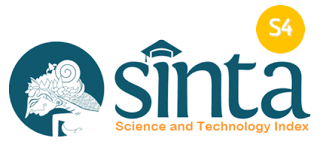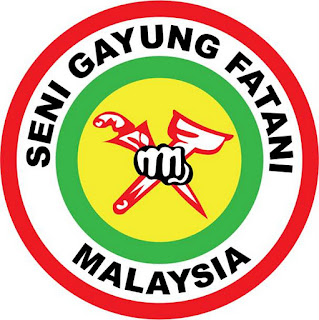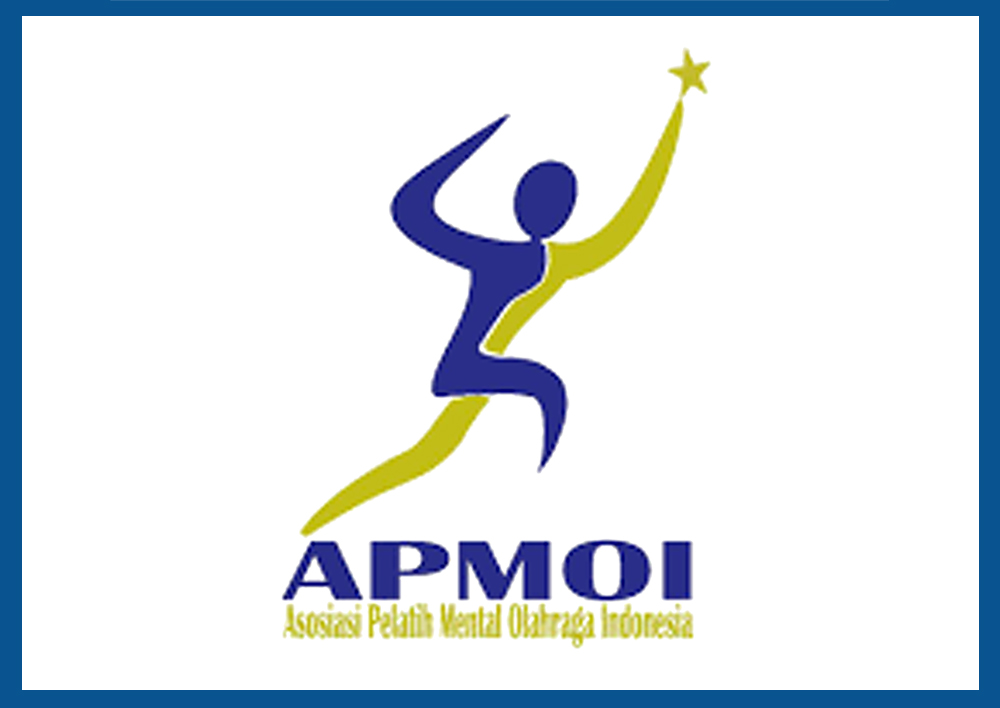Kompetensi Profesional dan Sosial Sebagai Prediktor Literasi pada Kinerja Guru Pendidikan Jasmani
Abstract
This research aimed to analyzed the effect of professional and social competences as a main competency component which give effect toward the physical educators performance. The performance assessment as an urgent mechanism to push desirable behavior of teacher based on Teacher Act. This research using correlational design with associative causal methods for collecting an information from 67 sample, which was an high school physical educator in Padang city West Sumatra. The data collected by questionnaire focus grup discussion. To account the effect of this study, researchers using IBM SPSS software. The result shows there is the differences between male and female teachers on professional and social competences with the physical educators performance. The power of direct effect identified that significantly giving positive f effect toward physical educators performance. For that reason, professional and social competence becoming the main factor in achievement of physical educators teachers.
Downloads
References
Apostolou, B., J. W. Dorminey, J. M. Hassell, and J. E. Rebele. (2018). “Accounting Education Literature Review (2017).” Journal of Accounting Education 43: 1–23. doi:10.1016/j.jaccedu.2018.02.001.
Armstrong, M. (2000). Performance management. London: Kogan Page.
Arthur, L. (2009). From performativity to professionalism: lecturers’ responses to student feedback. Teaching in Higher Education, 14(4), 441–454. doi:10.1080/13562510903050228
Becher, T., and P. Trowler. (2001). Academic tribes and territories, 2nd ed. Buckingham: OpenUniversity Press/SRHE.
Bernard HR, Ryan GW (2010). Analysing QualitativeData: Systematic Approaches. Los Angeles, CA: Sage.
Blomqvist, G. (1997). State, university and academic freedom in Sweden: The universities ofUppsala and Lund between 1820 and 1920.Minerva35: 17194.
Cardoso, A. P., M. Ferreira, J. L. Abrantes, C. Seabra, and C. Costa. (2011). “Personal and Pedagogical Interaction Factors as Determinants of Academic Achievement.” Procedia - Social and Behavioral Sciences 29: 1596–1605. doi:10.1016/j. sbspro.2011.11.402
Coetzee, S. A., A. Schmulian, and L. Kotze. (2014). “Communication Apprehension of South African Accounting Students: The Effect of Culture and Language.” Issues in Accounting Education 29 (4): 505–525. doi:10.2308/iace-50850.
Darling-Hammond L (2010). Evaluating Teacher Effec-tiveness: How Teacher Performance Assessment canMeasure and Improve Teaching. Centre for Ameri-can Progress. From (Re-trieved on 4 August 2011).
Day C (2013).The new lives of teachers. In: C Craig, PMeijer, J Broeckmans (Eds.): From Teacher Think-ing to Teachers and Teaching: The Evolution of aResearch Community (Advances in Research onTeaching). Bingley: Emerald Publisher, pp. 357-377.
Figazzolo L (2013). The Use and Misuse of Teacher Ap-praisal: An Overview of Cases in the DevelopedWorld. Brussels: Education International.
Hamre, B. K., Pianta, R. C., Mashburn, A. J., & Downer, J. T. (2012). Promoting Young Children’s Social Competence through the Preschool PATHS Curriculum and MyTeachingPartner Professional Development Resources. Early Education & Development, 23(6), 809–832. doi:10.1080/10409289.2011.60736.
Han, H. S. (2012). Professional Development That Works: Shifting Preschool Teachers’ Beliefs and Use of Instructional Strategies to Promote Children’s Peer Social Competence. Journal of Early Childhood Teacher Education, 33(3), 251–268. doi:10.1080/10901027.2012.7058.
Hanlon, G. (1998). Professionalism as enterprise: Service class politics and the redefinition ofprofessionalism.Sociology32, no 1: 4363.
Henning E, Van Rensburg W, Smit B (2004). FindingYour Way in Qualitative Research. South Africa: VanSchaik.
Hoecht, A. (2006). Quality assurance in UK higher education: Issues of trust, control,professional autonomy and accountability.Higher Education51: 54163.
Jones, J., Jenkin, M., & Lord, S. (2006). Developing effective teacher performance. California: SAGE Publishing Company.
Kennedy M (2010). Approaches to annual performanceassessment. In: MM Kennedy (Ed.): Teacher Assess-ment and the Quest for Teacher Quality: A Hand-book. San Francisco, CA: Jossey-Bass, pp. 225-250.
Knight, P. (2002). Being a teacher in higher education. Buckingham: SRHE/Open UniversityPress.
Lam, S., B. P. H. Wong, H. Yang, and Y. Liu. 2012. “Understanding Student Engagement with a Contextual Model.” In Handbook of Research on Student Engagement edited by S. L. Christenson and A. L. Reschly. 403–419. New York: Springer.
MacBeath J (2012). The Future of the Education Pro-fession. Educational International Research Institute.Leadership for Learning. Cambridge:Cambridge Net-work.
Macfarlane, B. (2001). Justice and lecturer professionalism.Teaching in Higher Education6, no.2: 14152.
Mathwasa, J., & Duku, N. (2015). Teachers at Crossroads: Teacher Professional Development through the Performance Appraisal System at Primary School Level in the Bulawayo Metropolitan Province: An Assessment. Journal of Social Sciences, 45(3), 221–235. doi:10.1080/09718923.2015.1189
McMillan J, Schumacher S (2006). Research in Educa-tion: Evidence-based Inquiry. 6th Edition. Pearson:Boston.
Monyatsi PP (2009). A Critical Analysis of the Mech-anisms and Procedures that Facilitate Effective Teach-er Appraisal in Botswana Schools. From <http://www.academicjournals.org,April NaN, 2009.> (Re-trieved on 20 March 2015).
Mouton J (2002). Understanding Social Research. 3rdImpression. Pretoria: Van Schaik Publishers.
Ncongwane, F., and T. VanOordt. (2017). “Accounting Student’S Motivation in Light of the Self-Determination Theory: A Case Study of a Township Campus.” 2017 Southern African Accounting Association Biennial International Conference Proceedings Champagne Sports Resort, Drakensberg, South Africa, 318–340. http://www.saaa.org.za/
Nygaard, C., & Belluigi, D. Z. (2011). A proposed methodology for contextualised evaluation in higher education. Assessment and Evaluation in Higher Education, 36(6), 657–671. https://doi.org/10.1080/02602931003650037
OECD (2013b). Teachers for the 21st Century: UsingEvaluation to Improve Teaching. Paris: OECD.
Papageorgiou, E., and C. W. Callaghan. (2018). “Personality and Adjustment in South African Higher Education Accounting Studies.” South African Journal of Accounting Research 32 (2–3): 189–204. doi:10.1080/10291954.2018.1442649.
Purnomo, S. (2017). Pengembangan Kinerja Guru. UIN Bandung.
Ramli, R., & Jalinus, N. (2013). Evaluasi kinerja guru sekolah menengah kejuruan Sumatera Barat pascasertifikasi. Jurnal Penelitian Dan Evaluasi Pendidikan, 17(1), 72–87. https://doi.org/10.21831/PEP.V17I1.1362.
Ramsden, P. (2003).Learning to teach in higher education, 2nd ed. Abingdon: RoutledgeFalmer.
Steyn GM (2009). Teachers’ perceptions of continuingprofessional development programmes in South Af-rica: A qualitative study. Acta Academica, 41(4): 114-137.
Subotzky, G., and P. Prinsloo. (2011). “Turning the Tide: A Socio-critical Model and Framework for Improving Student Success in Open Distance Learning at the University of South Africa.” Distance Education 32 (2): 177–193. doi:10.1080/ 01587919.2011.584846
Teddlie C, Yu F (2007). Mixed methods sampling: A ty-pology with examples. Journal of Mixed MethodsResearch, 1(1): 77-100.
Trowler, P. (1998).Academics responding to change. Buckingham: SRHE and Open UniversityPress.
Wirawan. (2009). Evaluasi Kinerja Sumber Daya Manusia. Salemba Empat.
Yusrizal, Y. (2017). Pengembangan instrumen penilaian kinerja guru di perguruan tinggi. PARAMETER: Jurnal Pendidikan Universitas Negeri Jakarta, 29(1), 108-120.
Zhoc, K. C. H., B. J. Webster, R. B. King, J. C. H. Li, and T. S. H. Chung. (2018). “Higher Education Student Engagement Scale (HESES): Development and Psychometric Evidence.” Research in Higher Education 1–26. doi:10.1007/s11162-018-9510-6.
DAFTAR PUSTAKA
Apostolou, B., J. W. Dorminey, J. M. Hassell, and J. E. Rebele. (2018). “Accounting Education Literature Review (2017).” Journal of Accounting Education 43: 1–23. doi:10.1016/j.jaccedu.2018.02.001.
Armstrong, M. (2000). Performance management. London: Kogan Page.
Arthur, L. (2009). From performativity to professionalism: lecturers’ responses to student feedback. Teaching in Higher Education, 14(4), 441–454. doi:10.1080/13562510903050228
Becher, T., and P. Trowler. (2001). Academic tribes and territories, 2nd ed. Buckingham: OpenUniversity Press/SRHE.
Bernard HR, Ryan GW (2010). Analysing QualitativeData: Systematic Approaches. Los Angeles, CA: Sage.
Blomqvist, G. (1997). State, university and academic freedom in Sweden: The universities ofUppsala and Lund between 1820 and 1920.Minerva35: 17194.
Cardoso, A. P., M. Ferreira, J. L. Abrantes, C. Seabra, and C. Costa. (2011). “Personal and Pedagogical Interaction Factors as Determinants of Academic Achievement.” Procedia - Social and Behavioral Sciences 29: 1596–1605. doi:10.1016/j. sbspro.2011.11.402
Coetzee, S. A., A. Schmulian, and L. Kotze. (2014). “Communication Apprehension of South African Accounting Students: The Effect of Culture and Language.” Issues in Accounting Education 29 (4): 505–525. doi:10.2308/iace-50850.
Darling-Hammond L (2010). Evaluating Teacher Effec-tiveness: How Teacher Performance Assessment canMeasure and Improve Teaching. Centre for Ameri-can Progress. From (Re-trieved on 4 August 2011).
Day C (2013).The new lives of teachers. In: C Craig, PMeijer, J Broeckmans (Eds.): From Teacher Think-ing to Teachers and Teaching: The Evolution of aResearch Community (Advances in Research onTeaching). Bingley: Emerald Publisher, pp. 357-377.
Figazzolo L (2013). The Use and Misuse of Teacher Ap-praisal: An Overview of Cases in the DevelopedWorld. Brussels: Education International.
Hamre, B. K., Pianta, R. C., Mashburn, A. J., & Downer, J. T. (2012). Promoting Young Children’s Social Competence through the Preschool PATHS Curriculum and MyTeachingPartner Professional Development Resources. Early Education & Development, 23(6), 809–832. doi:10.1080/10409289.2011.60736.
Han, H. S. (2012). Professional Development That Works: Shifting Preschool Teachers’ Beliefs and Use of Instructional Strategies to Promote Children’s Peer Social Competence. Journal of Early Childhood Teacher Education, 33(3), 251–268. doi:10.1080/10901027.2012.7058.
Hanlon, G. (1998). Professionalism as enterprise: Service class politics and the redefinition ofprofessionalism.Sociology32, no 1: 4363.
Henning E, Van Rensburg W, Smit B (2004). FindingYour Way in Qualitative Research. South Africa: VanSchaik.
Hoecht, A. (2006). Quality assurance in UK higher education: Issues of trust, control,professional autonomy and accountability.Higher Education51: 54163.
Jones, J., Jenkin, M., & Lord, S. (2006). Developing effective teacher performance. California: SAGE Publishing Company.
Kennedy M (2010). Approaches to annual performanceassessment. In: MM Kennedy (Ed.): Teacher Assess-ment and the Quest for Teacher Quality: A Hand-book. San Francisco, CA: Jossey-Bass, pp. 225-250.
Knight, P. (2002). Being a teacher in higher education. Buckingham: SRHE/Open UniversityPress.
Lam, S., B. P. H. Wong, H. Yang, and Y. Liu. 2012. “Understanding Student Engagement with a Contextual Model.” In Handbook of Research on Student Engagement edited by S. L. Christenson and A. L. Reschly. 403–419. New York: Springer.
MacBeath J (2012). The Future of the Education Pro-fession. Educational International Research Institute.Leadership for Learning. Cambridge:Cambridge Net-work.
Macfarlane, B. (2001). Justice and lecturer professionalism.Teaching in Higher Education6, no.2: 14152.
Mathwasa, J., & Duku, N. (2015). Teachers at Crossroads: Teacher Professional Development through the Performance Appraisal System at Primary School Level in the Bulawayo Metropolitan Province: An Assessment. Journal of Social Sciences, 45(3), 221–235. doi:10.1080/09718923.2015.1189
McMillan J, Schumacher S (2006). Research in Educa-tion: Evidence-based Inquiry. 6th Edition. Pearson:Boston.
Monyatsi PP (2009). A Critical Analysis of the Mech-anisms and Procedures that Facilitate Effective Teach-er Appraisal in Botswana Schools. From <http://www.academicjournals.org,April NaN, 2009.> (Re-trieved on 20 March 2015).
Mouton J (2002). Understanding Social Research. 3rdImpression. Pretoria: Van Schaik Publishers.
Ncongwane, F., and T. VanOordt. (2017). “Accounting Student’S Motivation in Light of the Self-Determination Theory: A Case Study of a Township Campus.” 2017 Southern African Accounting Association Biennial International Conference Proceedings Champagne Sports Resort, Drakensberg, South Africa, 318–340. http://www.saaa.org.za/
Nygaard, C., & Belluigi, D. Z. (2011). A proposed methodology for contextualised evaluation in higher education. Assessment and Evaluation in Higher Education, 36(6), 657–671. https://doi.org/10.1080/02602931003650037
OECD (2013b). Teachers for the 21st Century: UsingEvaluation to Improve Teaching. Paris: OECD.
Papageorgiou, E., and C. W. Callaghan. (2018). “Personality and Adjustment in South African Higher Education Accounting Studies.” South African Journal of Accounting Research 32 (2–3): 189–204. doi:10.1080/10291954.2018.1442649.
Purnomo, S. (2017). Pengembangan Kinerja Guru. UIN Bandung.
Ramli, R., & Jalinus, N. (2013). Evaluasi kinerja guru sekolah menengah kejuruan Sumatera Barat pascasertifikasi. Jurnal Penelitian Dan Evaluasi Pendidikan, 17(1), 72–87. https://doi.org/10.21831/PEP.V17I1.1362.
Ramsden, P. (2003).Learning to teach in higher education, 2nd ed. Abingdon: RoutledgeFalmer.
Steyn GM (2009). Teachers’ perceptions of continuingprofessional development programmes in South Af-rica: A qualitative study. Acta Academica, 41(4): 114-137.
Subotzky, G., and P. Prinsloo. (2011). “Turning the Tide: A Socio-critical Model and Framework for Improving Student Success in Open Distance Learning at the University of South Africa.” Distance Education 32 (2): 177–193. doi:10.1080/ 01587919.2011.584846
Teddlie C, Yu F (2007). Mixed methods sampling: A ty-pology with examples. Journal of Mixed MethodsResearch, 1(1): 77-100.
Trowler, P. (1998).Academics responding to change. Buckingham: SRHE and Open UniversityPress.
Wirawan. (2009). Evaluasi Kinerja Sumber Daya Manusia. Salemba Empat.
Yusrizal, Y. (2017). Pengembangan instrumen penilaian kinerja guru di perguruan tinggi. PARAMETER: Jurnal Pendidikan Universitas Negeri Jakarta, 29(1), 108-120.
Zhoc, K. C. H., B. J. Webster, R. B. King, J. C. H. Li, and T. S. H. Chung. (2018). “Higher Education Student Engagement Scale (HESES): Development and Psychometric Evidence.” Research in Higher Education 1–26. doi:10.1007/s11162-018-9510-6.



_(700_x_400_mm)_(3)_.png)


_(700_x_400_mm)_1.png)



